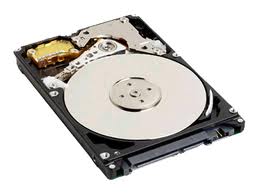 Researchers may have found a way to speed up data storage 100-fold, breaking one barrier holding back how fast data can be transferred.
Researchers may have found a way to speed up data storage 100-fold, breaking one barrier holding back how fast data can be transferred.
If successfully translated to a storage product, the new technology alone would theoretically cut the time to store a bit of data on a hard disk drive from a nanosecond – a billionth of a second – to a hundred-billionth of a second.
That means the aggregate time to store the bits in a terabyte of data would drop from about 22 minutes to about a minute and 20 seconds.
The researchers at York University in the U.K. and Nijmegen University in the Netherlands accomplished the feat by heating a magnetic material with laser bursts that alter what is called the magnetic spin of the material at the atomic level, according to an explanation by York University. There are two possible spins, parallel and anti-parallel, and in storage, these binary states would represent the ones and zeros that designate bit types.
Current storage on hard drives alters spin using a fluctuating magnetic field, which is slower, the researchers say. Their method “used X-ray Magnetic Circular Dichroism (XMCD) to investigate thin films of an alloy of gadolinium iron and cobalt (GdFeCo) to study ultrafast spin reversal.”
The researchers didn’t say how long it might take for their discovery to be turned into ultra-fast storage devices.





